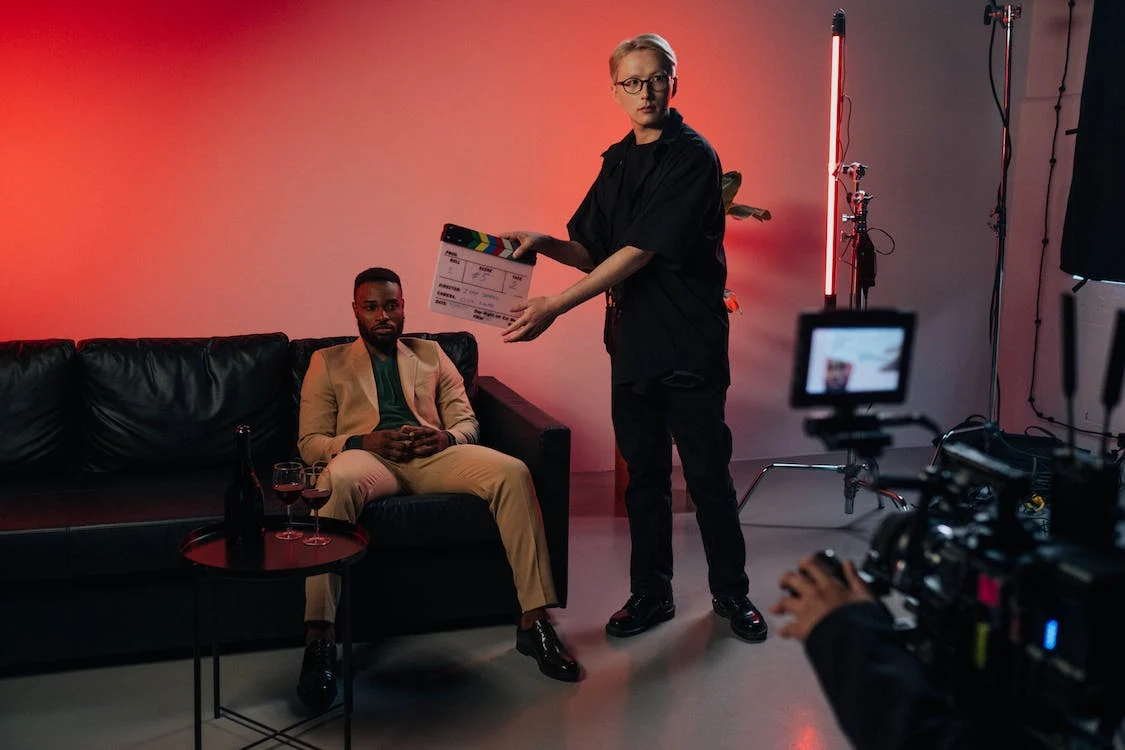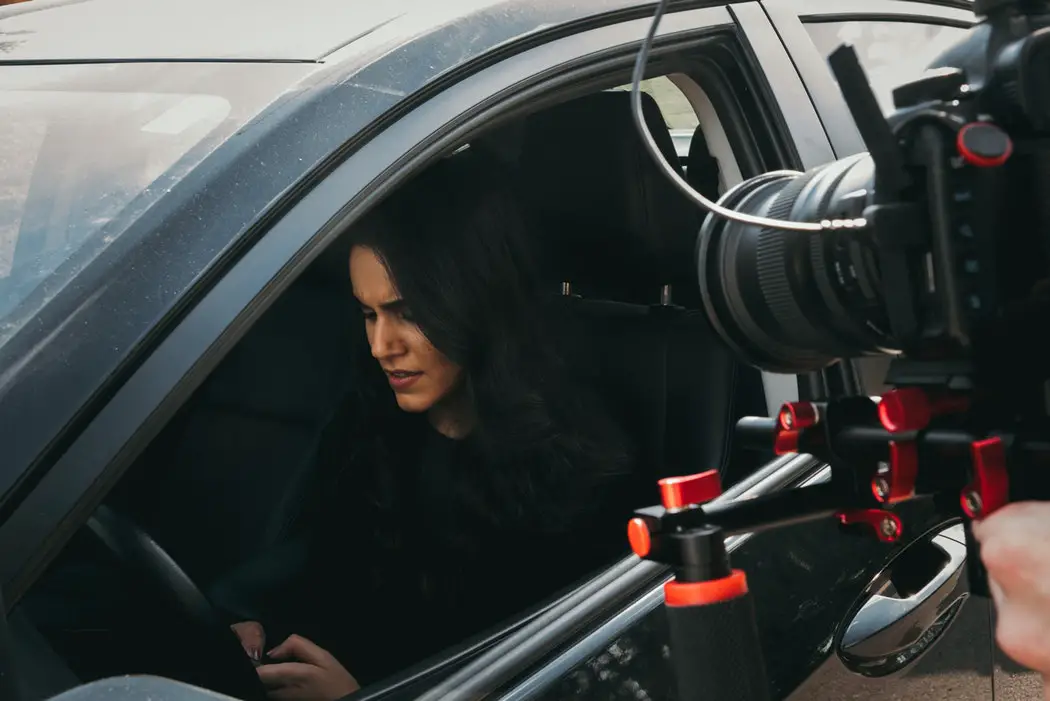How Long Are Actors on Set?
A Typical Day on Set
(By Jim Webb)

(Photo: Rene Ranisch/Unsplash)
One of the most common questions people have when it comes to the world of acting is, “How long do actors spend on set?” The answer varies greatly depending on the type of production, the role, the schedule, and the complexity of the scenes being filmed. However, while the specifics can differ, it’s safe to say that actors often work long hours, especially during intense shooting schedules. Let’s explore what an average day on set looks like for an actor and some of the factors that determine the amount of time they spend on set.
A Typical Day on Set for Actors

(Photo: Ron Lach | Pexels)
Actors, like most members of a production crew, often face long and unpredictable days on set. A typical workday for an actor can range from 8 to 14 hours, depending on the production’s needs, the shooting schedule, and the type of project. In television and film, a standard “workday” usually begins early in the morning, often around 6 or 7 a.m., and continues into the evening, sometimes well past 10 p.m.
- Rehearsals and Preparation: Before shooting, actors typically spend time rehearsing their scenes, reviewing their lines, and preparing their performances. This preparation could take place in the morning before the camera starts rolling or during breaks between takes. The amount of rehearsal time can vary depending on the complexity of the scene, whether special effects or choreography are involved, or if the actor needs extra time to get into character.
- Filming: Once the cameras are rolling, actors are on set and involved in the filming process. A scene can take several takes to get right, and sometimes it may require multiple camera angles or different angles of the same scene. This means that actors may be required to perform the same action or dialogue numerous times.
- Breaks and Downtime: While actors do have downtime between scenes, they are usually expected to remain available and ready for action. During these breaks, actors may relax in a designated “green room” or “holding area” while they wait for the next scene. Depending on the production schedule, these breaks can vary in length. However, even during downtime, actors must remain focused and prepared, as they could be called to set at any moment.
- End of the Day: After the day’s shooting wraps up, actors will usually have some time to debrief with the director or producers, review the footage, and plan for the next day. Depending on the complexity of the project, some actors may have additional work after the shoot, such as attending fittings for costumes, going through makeup trials, or attending promotional events.
Factors Affecting How Long Actors Are on Set

(Photo by Kal Visuals on Unsplash)
- Type of Production: The length of time actors are required to be on set can vary based on whether they are working on a film, television show, commercial, or theater production. For example:
- Films: On larger budget film productions, actors can spend long days on set, sometimes working 12-14 hours a day for weeks or months at a time. A feature film shoot can last several months, especially if the production is particularly complex or takes place in multiple locations.
- Television Shows: On a TV show, the schedule is typically more predictable, but actors still spend long hours on set. In a typical drama series, the filming days can range from 8 to 12 hours per day, and this schedule is often maintained for weeks, if not months, depending on the season length. Sitcoms or series with multiple episodes per season might require actors to be on set for extended periods over a condensed timeframe.
- Commercials and Short Productions: In contrast, working on a commercial or short film usually involves shorter shooting schedules. For a commercial, actors may only need to be on set for a few hours or a single day. These productions tend to have a faster turnaround and require less rehearsal time.
- Role and Importance of the Character: The size and importance of an actor’s role in a production can greatly affect how much time they spend on set. Lead actors are typically required to be present for the majority of the filming, especially in complex productions with long scenes. Supporting actors, on the other hand, may spend less time on set, only being called when their character is required for a specific scene or sequence.For actors in ensemble casts, they may have more downtime between scenes when they are not directly involved in the current filming. However, even supporting or minor roles can sometimes result in long days on set, depending on the director’s shooting schedule and the number of takes required.
- Complexity of the Scene: The complexity of the scenes being filmed also plays a significant role in determining how long actors are on set. Action sequences, stunts, or scenes with special effects often require more time to film due to the added safety measures, choreography, and technical aspects involved. Similarly, scenes that require extensive makeup, hair, or costume changes can also extend an actor’s time on set.Dramatic, emotionally charged scenes may require several takes to get the performance just right. If an actor is required to perform multiple takes to capture the perfect emotion, this can add hours to their time on set.
- Production Schedule: In high-budget productions with tight schedules, the days can be long and intense. Directors and producers typically have a clear timeline for when certain scenes need to be shot, and they may push for a quick turnaround in order to meet deadlines. Independent films or shows with smaller budgets might have more relaxed schedules, allowing for longer rehearsals and shorter days for the actors.
- Location and Travel: Productions that require actors to shoot on location, especially in remote or international settings, may involve extended shooting days to maximize the time spent on site. Traveling between locations, adjusting to new time zones, or shooting outdoors in unpredictable weather can also increase the amount of time an actor spends on set.
How Do Actors Manage Long Hours on Set?
Given the demands of long shooting days, actors must manage their time and energy carefully to stay focused and perform at their best. Some strategies include:
- Staying in Shape: Many actors maintain a fitness routine to help them stay energized and reduce the physical toll of long days. Physical fitness can also help actors maintain the stamina needed for extensive action scenes or physically demanding roles.
- Mental Focus: Actors must find ways to stay mentally sharp, even during downtime. This might involve meditation, breathing exercises, or reviewing lines and notes. Keeping a positive attitude and staying focused on the character can help prevent burnout during long stretches on set.
- Time Management: To make the most of their time, actors often use downtime wisely. This could include reviewing scripts, relaxing, or attending to personal needs. When an actor is off camera, staying focused on the production while taking care of themselves is key to maintaining their energy levels.
Conclusion
The length of time actors spend on set can vary, but it’s almost always longer than most people realize. A typical workday for an actor can last from 8 to 14 hours, with the potential for longer days depending on the type of production, the complexity of the scenes, and the specific role being played. The intense schedule of film and television production requires actors to be dedicated and prepared for long hours, but the reward is being part of creating a story that will captivate and entertain audiences. Despite the demanding nature of the job, the excitement of bringing a character to life and being part of a larger creative effort makes the long hours on set worthwhile.



